|
The MAP News
472nd Edition July 6, 2019 |
|
FEATURE 5th Photography Contest in the run up to the 26th July, International Mangrove Day  Dear MAP Friends, We are fast approaching 26th July, the International Day for the Conservation of Mangroves. We at the Mangrove Action Project have launched our 5th Photography Contest in celebration of this special day. We would be thrilled if you would join us and enter your favorite mangrove photos which will become part of a global mangrove exhibition this year. There are some great prizes to be won and we're aiming to make this years' the most stunning photo gallery yet, reflecting the diversity and beauty of mangroves worldwide. Please pass this on to any friends, family or colleagues you may think would be interested in the contest. Many Thanks. CLICK HERE for more information and to enter photos GLOBAL Group aims to protect the Fishing Cat of the Mangroves.  GLOBAL- Fishing cats are native to wetlands, rivers, and mangrove forests in South and Southeast Asia. They prey primarily on fish and crustaceans. Like many other rare species, not much is known about fishing cats in the wild. They are threatened by habitat destruction, poaching, and a lack of awareness throughout much of their range. Mangroves, which are prime habitat for fishing cats, provide local people with nurseries for fish and protect entire communities from storm surges. However, many mangroves where fishing cats live are quickly being lost to deforestation and aquaculture. We are educating and empowering local communities to study, protect and restore habitat for this vulnerable cat and its globally important mangrove habitat in their backyards. Fishing Cat Conservancy projects are centered around education and capacity building to enhance citizen involvement and stewardship in wildlife conservation. READ MORE AFRICA VICTORY: Plans for Massive Coal Project in Kenya Canceled 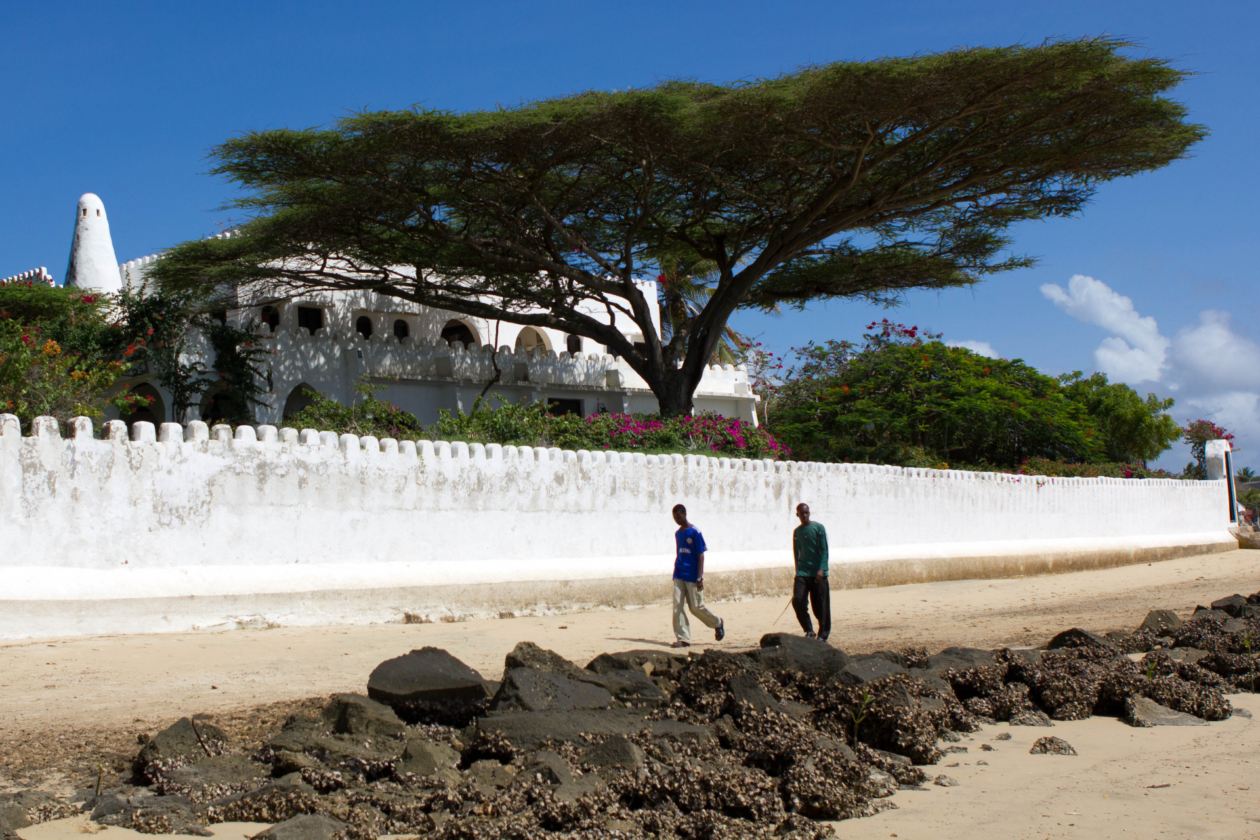 KENYA - a Kenyan tribunal canceled plans to build the country’s first-ever coal fired power plant, citing environmental and public health risks. This immense, hard-fought victory would not have been possible without years of advocacy and resistance by a strong network of anti-coal activist groups across the region. One group that has been integral to the resistance efforts is Save Lamu, a Global Greengrants Fund grantee. The 1,050 megawatt Chinese-backed power plant would have increased the country’s greenhouse gas emissions by 700%, according to activists. Moreover, the megaproject would have significantly damaged the health and livelihoods of locals in the coastal community of Lamu – a UNESCO world heritage site and among the oldest and best-preserved Swahili settlements in East Africa. The tribunal found that the government had breached the law for approving construction of the project without an environmental impact assessment. It also found that the government violated the rights of local people, failing to inform the public of the health risks associated with the project, which include difficulty breathing, premature death, and acid rain contamination of food and water sources. READ MORE Challenges and opportunities in the adoption of community forestry 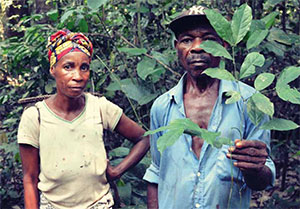 CONGO - Securing access to land, territories and natural resources promotes the autonomous development of indigenous peoples and local communities (IPLCs). In recent years, community-led forest management has become increasingly recognised as a potential way to reduce deforestation and improve the livelihoods of rural communities that rely entirely on forests to make a living. Indeed, there is a consensus that areas of forest under community control often deliver the best results from a social and environmental point of view2. The possibility for IPLCs to manage the traditional forests on which they subsist has not yet been formally established in Congo. Despite the opportunities that community forestry offers for IPLCs to secure customary land rights and improve their livelihoods, a number or constraints and challenges persist in relation to land tenure insecurity and overlapping. READ MORE AMERICAS The art and science of mangrove conservation  MEXICO - Mangroves—the trees that grow between the land and the ocean—have a big job. They filter water, store carbon, and help protect coastline communities from storm surges. Yet over the past five decades, an estimated 50 percent of global mangrove coverage has been lost. Now, Octavio Aburto is working to save them—one photo at a time. Octavio knows the transformative power of the camera lens. The 2018 Pew marine fellow and Scripps Institution of Oceanography professor has long used photography to capture the public's imagination and bring attention to his research. "Taking an aerial picture to understand a forest problem is radically changing how we're doing science." Octavio Aburto, 2018 Pew marine fellow and professor, Scripps Institution of Oceanography LEARN MORE Project to begin to protect Mangrove Island on the Loxahatchee River  USA - The Loxahatchee River was Florida’s first designated river in the National Wild and Scenic Rivers System. “A tremendously popular site for both commercial and recreational fishing," said Mike Grella with the Jupiter Inlet District. But a piece of its scenery, is disappearing. “Mangrove Island has begin to erode fairly significantly over the past four or five decades," Grella said. Now a barge sits in the middle of the river next to the island. On it, the first pieces for its protection. “We’re going to lay down the breakwaters and instead of just one, we’re going to place three or four," according to Grella. He said the rocks will be placed around the island's historical perimeter, allowing the mangroves to expand. “They provide habitat for all types of creatures, shellfish, a nursery for fish.” READ MORE ASIA Ministry adds report on Maldives to their website, available to the public 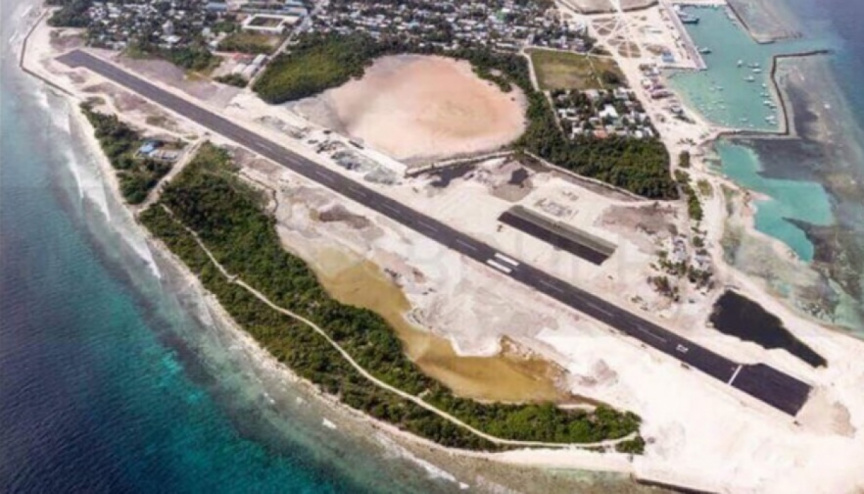 REPLUBLIC OF MALDIVES - On 27 Feb. 2019 Alfredo Quarto, the cofounder of the NGO Mangrove Action Project and International Program Development Director and Maldive's Minister of Environment H.E. Dr. Hussain Rasheed Hassan, agreed to conduct a collaborative investigation between MAP and the Ministry concerning the possibility to restore and conserve the remaining mangroves on the island of Kulhudhuffushi. After Dr. Hassen announced his intent to support such an international investigation into the status of the remaining mangroves on Kulhudhuffushi, Quarto invited Drs Joe Lee and Dan Friese, fellow members of the IUCN Mangrove Specialist Group (MSG), to join him, as well as MAP’s Asia Coordinator Jim Enright on this project. Both MAP and MSG are dedicated to the objectives of conserving and restoring the planet’s threatened mangroves, and the opportunity to work towards this directive at Kulhudhuffushi was of great interest to both organizations. Preparations were started for the MAP – MSG team to visit the Maldives 11-13 April, 2019 amid local reports that the remaining mangroves were under threat, the water body drying-up and a large fish kill had occurred, at Kulhudhuffushi. READ MORE Groups urge Government to stop pushing the Sundarbans towards destruction  BANGLADESH - In the light of ongoing threats on the world’s largest mangrove forest, the Sundarbans, located at the Indian-Bangladeshi border, we write to the country delegates to the 43rd Session of the UNESCO World Heritage Committee by calling for an urgent intervention into Bangladesh government’s decision to implement the destructive Rampal coal power-plant. As concerned global citizens, earth defenders, climate organisations and researchers, and members of Bangladeshi environmental groups abroad, we express our unequivocal support to the draft decision generated by international biodiversity experts and to be discussed and voted in Baku on 4 July 2019. We welcome the draft decision that calls in particular to halt the construction of the coal plants at Rampal, Taltali and Kalapara and 154 other active industrial activities in southwest Bangladesh until the exact impacts for the forest have been critically assessed. VIEW PETITION AND SIGNATORIES Mangroves protect coastal areas and should not be razed for bullet train  INDIA - 54,000 mangrove trees will be razed for the Mumbai-Ahmedabad bullet train project, all in a bid to satiate the PM's dream project. the state transport minister Diwakar Raote as saying that the legislative council that the government will plant five times the trees that will be cut and will compensate the locals who are likely to be affected. A total of 1,379 hectares will likely be acquired for the project: 724.13 hectares of private land in Gujarat and 270.65 hectares in Maharashtra. Despite studies showing the benefits of mangroves, the government is still going ahead with the bullet train project. The nearly Rs 1 lakh crore project which runs a length of 508km will cut down travel time between Mumbai and Ahmedabad to just two hours. READ MORE In India’s Sundarbans, communities shrink as their island sinks
 INDIA - Adapting to global heating in the Sundarbans has been happening incrementally for decades. In 1996, the island of Lohachara became the first populated island in the world to be engulfed by the sea, and its inhabitants the world’s first climate refugees. The Indian government relocated the island’s people to one of the largest islands in the Sundarbans, Sagar, which neighbors Mousuni. It would take a devastating storm nearly 15 years later for the Indian and Bangladeshi governments to publicly state that climate change was a major force impacting the lives of people in the Sundarbans. In 2009, Cyclone Aila killed close to 340 people across India and Bangladesh and left more than a million homeless. Aila was a major turning point in the lives of many locals, but it was not the start of their troubles and the river’s expanding appetite. Without drastic international action to lower carbon emissions fueling the climate crisis, hundreds of thousands of Sundarbans residents will likely be forced to migrate inland. Many can’t afford to leave and most don’t want to, the best alternative being dirty and cramped slums in India’s major cities. READ MORE OCEANA Dead mangrove forests found to emit more methane than live trees 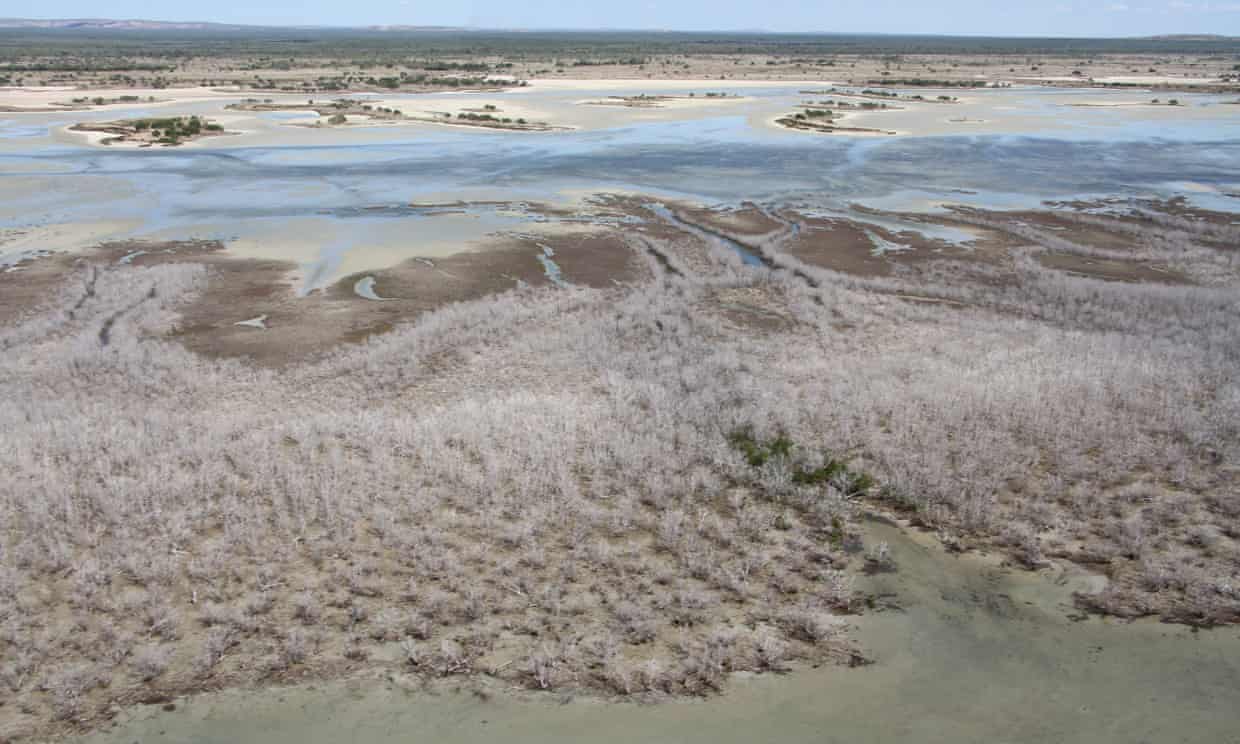 AUSTRALIA - Mangrove die-offs in north Queensland could have a disproportionate effect on the level of greenhouse gases in the atmosphere. Mangrove forests that died along a 1,000km stretch of coastline in northern Australia have been emitting methane at rates eight times higher than live trees, according to new research. Scientists from Southern Cross University have used the site of the mass dieback along the Gulf of Carpentaria to measure methane emissions from mangrove tree stems for the first time. Forests of mangroves along the coastline died as a result of extreme heat, rainfall shortages and low sea levels in the summer of 2015-16. The mass mortality is one of the worst cases of forest dieback ever recorded and happened in the same year as the mass coral bleaching on the Great Barrier Reef. Researchers travelled to the Gulf of Carpentaria in August last year to measure methane emissions from an area of live mangroves, then compared them to those from an area of dead mangroves about two kilometres away. READ MORE Mangrove forests could 'drown' due to rising seas  AUSTRALIA - It's low tide on a sunny, dry season afternoon in the mangrove forest at East Arm in Darwin Harbour. As the tide laps at the dense tangle of roots that run for thousands of hectares along northern Australia's pristine coastline, it's hard to comprehend these forests could be wiped out by the end of the century. "They're definitely vulnerable," said Madeline Goddard, a PhD candidate at Charles Darwin University. Ms Goddard is studying mangroves to see how they will adapt to rising sea levels."Across the world the sea level is rising, increasing the amount of time mangroves spend underwater, potentially flooding and killing these valuable forests," Ms Goddard said. It is a fear shared by the Australian Marine Conservation Society. Northern Territory manager Jason Fowler said the mangroves could drown because sediment was accumulating slower than the rate that the sea level was rising. READ MORE |
ACTION ALERTS5th Photography Contest in the run up to the 26th July, International Mangrove Day
|
Mangrove Action ProjectClick here to view past newsletters |
|
Search News Archive
Saturday, July 6, 2019
MAP News Issue 472 - July 6, 2019
Subscribe to:
Post Comments (Atom)
-
The community of adults and youth in Cayman Islands has come together recently to release a series of educational videos. Each is geared to...
-
By Alfredo Quarto, Program & Policy Director Co-founder, MAP There is a rather urgent situation concerning the bio-invasion of the Son...
-
By: Isabel Robinson, MAP Volunteer Intern Some months ago I decided to come to Thailand and do an internship in mangrove conservation, ...
MAP News Issue #596 = April 20, 2024
ENTRIES NOW OPEN! Mangrove Photography Awards 2024 10 Years Celebrating Mangroves GLOBAL - MAP has launched our 10th Mangrove Photograp...




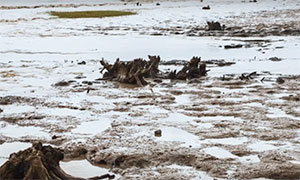

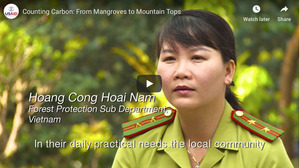









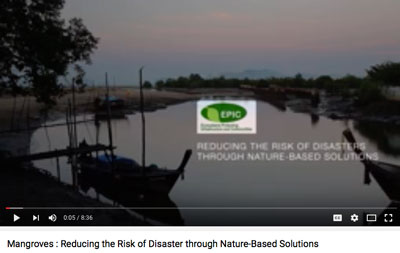

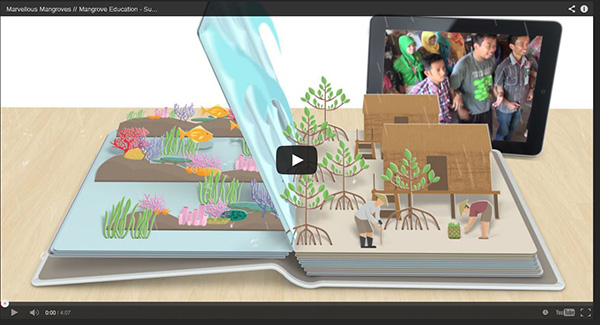



No comments:
Post a Comment
Note: Only a member of this blog may post a comment.